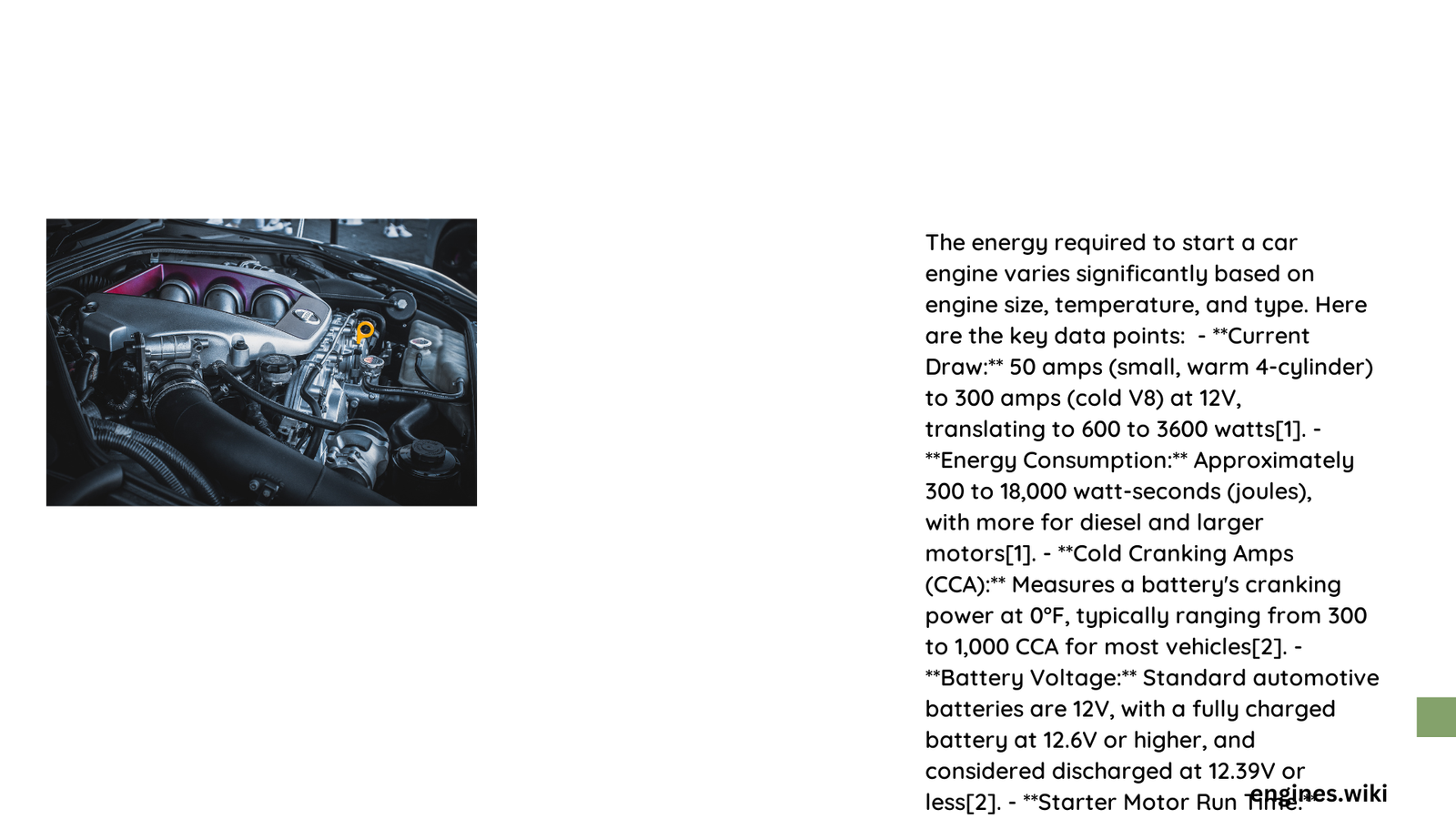Car engine starting energy represents the precise electrical power required to transform potential mechanical energy into kinetic motion, bridging the complex interaction between battery capacity, starter motor efficiency, and engine dynamics. This intricate process demands a sophisticated understanding of electrical and mechanical principles that govern vehicle ignition systems.
What Determines Car Engine Starting Energy Requirements?
How Does Battery Capacity Influence Engine Start Performance?
Battery capacity plays a crucial role in determining car engine starting energy. The relationship between amp-hour ratings and voltage output directly impacts the engine’s ability to start reliably.
Key Battery Performance Metrics:
- Cold Cranking Amps (CCA): Measures battery’s high-current delivery capability
- Voltage Output: Typically 12 volts for standard automotive systems
- Temperature Sensitivity: Battery performance significantly varies with ambient temperature
| Engine Type | Warm Conditions (Amps) | Cold Conditions (Amps) |
|---|---|---|
| 4-Cylinder | 50-100 | 100-150 |
| V6 | 100-150 | 200-250 |
| V8 | 150-200 | 250-300 |
What Factors Impact Starter Motor Efficiency?
Starter motor efficiency significantly influences the car engine starting energy requirements. Modern permanent magnet field starters demonstrate remarkable energy conversion capabilities.
Efficiency Characteristics:
- Electrical to mechanical energy conversion rate: 70-90%
- Current draw variations based on engine size
- Voltage stability during ignition process
How Does Temperature Affect Starting Energy?
Temperature dramatically impacts car engine starting energy, particularly in cold environments. Battery capacity can decrease by up to 50% at freezing temperatures.
Temperature Impact Factors:
- Reduced battery chemical reactivity
- Increased mechanical resistance in engine components
- Higher current requirements for initial engine rotation
What Role Does Voltage Play in Engine Ignition?
Optimal voltage levels are critical for efficient car engine starting energy transmission. Voltage fluctuations can significantly impair starter motor performance.
Voltage Performance Parameters:
- Optimal Range: 12-14.4 volts
- Minimum Functional Voltage: 10 volts
- Performance Degradation: Voltage drops below 10 volts cause significant starting issues
Practical Recommendations for Optimal Starting Energy
- Regular battery maintenance
- Use high-quality batteries with appropriate CCA ratings
- Check battery health before extreme temperature seasons
- Maintain clean battery terminals
- Consider battery age and replacement timing
Technical Insights

Car engine starting energy is not merely a technical specification but a complex interaction of electrical, mechanical, and environmental factors. Understanding these nuanced relationships helps vehicle owners and mechanics optimize engine performance and reliability.
Advanced Considerations
- Emerging battery technologies
- Electrical system diagnostics
- Predictive maintenance strategies
Conclusion
Mastering car engine starting energy requires comprehensive knowledge of battery systems, starter motor mechanics, and environmental influences. Proactive maintenance and understanding these technical dynamics ensure reliable vehicle performance.
